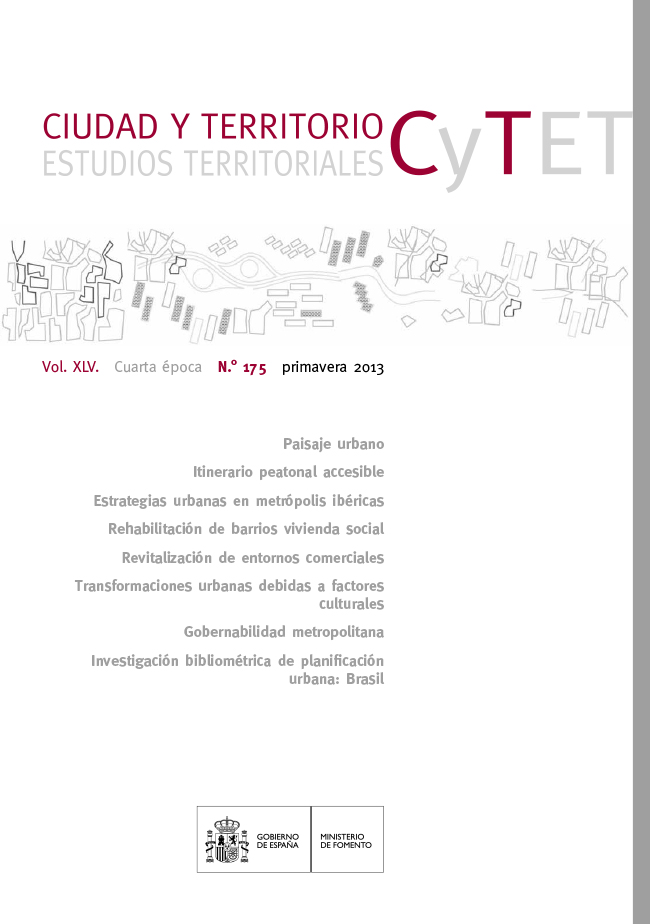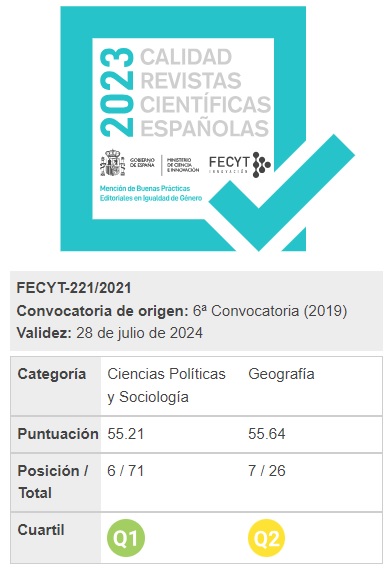Metropolitan Governance in Bogotá and Santiago: Divergent Institutions, Convergent Results
Keywords:
Gobernabilidad, áreas metropolitanas, institucionalidad metropolitana, transformaciones urbanasAbstract
The aim of the paper is to understand to what extent the development and evolution of metropolitan
areas in Latin America is explained by the institutions governing it. For that purpose, the cases of
Bogotá in Colombia and Santiago de Chile are compared, considering that these metropolitan areas
represent two opposite models of metropolitan governance. The hypothesis is that even though
both cities hold two opposite models of institutions, the homogenizing forces of globalization and
the market are stronger than public regulatory action in any form, so that metropolitan institutions
have a low incidence in the generation of socio-territorial balance conditions in the economic,
physical and social development and transformation of these cities.
Downloads
Downloads
Published
How to Cite
Issue
Section
License
Copyright (c) 2013 Luis Fuentes, Arturo Orellana

This work is licensed under a Creative Commons Attribution-NonCommercial-NoDerivatives 4.0 International License.
Considering the provisions of the current legislation on Intellectual Property, and in accordance with them, all authors publishing in CyTET give -in a non-exclusive way and without time limit- to the Ministry of Transport, Mobility and Urban Agenda the rights to disseminate, reproduce, communicate and distribute in any current or future format, on paper or electronic, the original or derived version of their work under a Creative Commons Attribution-NonCommercial-NoDerivative 4.0 license International (CC BY-NC-ND 4.0), as well as to include or assign to third parties the inclusion of its content in national and international indexes, repositories and databases, with reference and recognition in any case of its authorship.
In addition, when sending the work, the author(s) declares that it is an original work in which the sources that have been used are recognized, committing to respect the scientific evidence, to no longer modify the original data and to verify or refute its hypothesis. Author(s) also declare that the essential content of the work has not been previously published nor will it be published in any other publication while it is under evaluation by CyTET; and that it has not been simultaneously sent to another journal.
Authors must sign a Transfer of Rights Form, which will be sent to them from the CyTET Secretariat once the article is accepted for publication.
With the aim of promoting the dissemination of knowledge, CyTET joins the Open Journal Access (OA) movement and delivers all of its content to various national and international indexes, repositories and databases under this protocol; therefore, the submission of a work to be published in the journal presupposes the explicit acceptance by the author of this distribution method.
Authors are encouraged to reproduce and host their work published in CyTET in institutional repositories, web pages, etc. with the intention of contributing to the improvement of the transfer of knowledge and the citation of said works.








 Enlace a CyTET en Linkedin
Enlace a CyTET en Linkedin